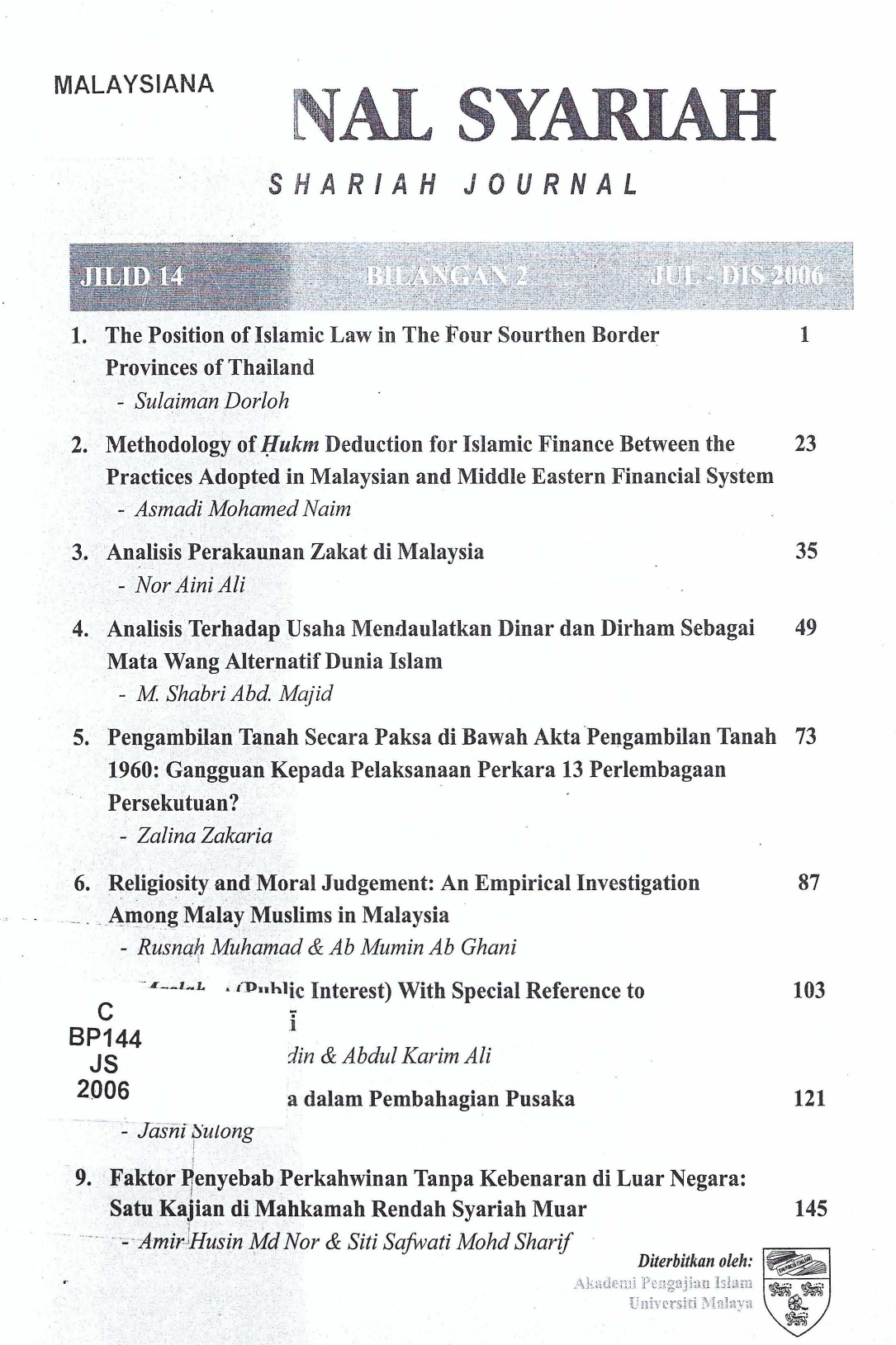SUMBER ZAKAT: PERLUASAN TERHADAP HARTA YANG DIIKHTlLAF
Abstract
Efforts for increasing zakat collection have been undertaken by the
government. Privatization of zakat collection through the establishment of
Pusat Zakat as being implemented by many states was one of them and seem
to be effective. Unfortunately, zakat-base in today 's practice of zakat collection
was limited only on the traditional sources of zakat known as zakat on the
consensus wealth (ittifaq). Other wealths are exemptedfrom zakat regardless
of their return. However, in reality today, many current economic activities
are capable of yielding good returns, probably higher than those of the
traditional sources of zakat. Thus zakat should also be considered on these
wealth, where zakat-base should not be limited only on the traditional sources
but also should be expanded to other sources known as un consensus wealth
(ikhtiliif). This study attempts to identify new sources of zakat especially
zakat on the unconsensus wealth (ikhtiliif) and to examine the perception
and acceptence of individuals on this matter. The study utilises primary data
collected through out West Malaysia and will be analysed using descriptive
analysis. The result shows that based one difference jurist opinions, there
are possibilities to extend zakat base. In addition, there are plenty of current
economic activities which may be considered as new sources of zakat.
However, there are challenges in the implemention proces, such as
determining bawl and ni$iib, determining calculation procedure and ensuring
zakat to be paid through formal institutions of zakat collection.
Downloads
Downloads
Published
How to Cite
Issue
Section
License

This work is licensed under a Creative Commons Attribution-NonCommercial 4.0 International License.
COPYRIGHT: All rights reserved. Not allowed to be reproduced any part of articles and contents of this journal in any form or by any way, whether electronic, mechanical, photocopying, recording or otherwise without permission in writing from the Chief Editor, Jurnal Syariah.











